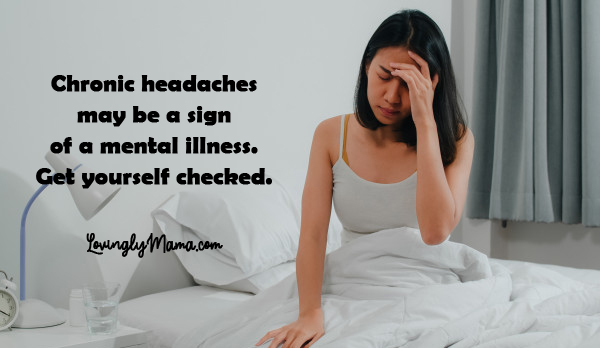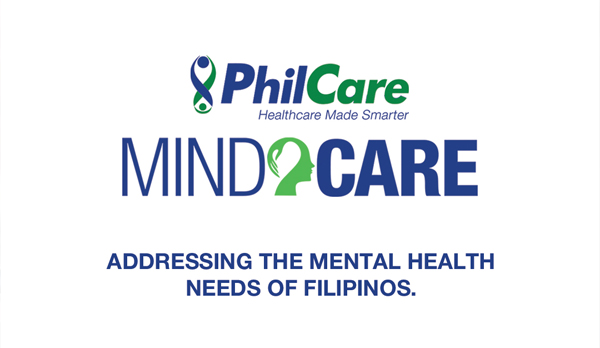Even before the COVID-19 pandemic began, the Philippines already had one of the highest rates of depression in Southeast Asia. Health experts report that there are more than three million Filipinos afflicted with the illness. They say that anxiety, depression, and insomnia have become more prevalent since the pandemic began. With all that is happening, it is all the more important to put an emphasis on understanding mental health and its value to our well-being.
The Stark Truth
Let’s look at some facts based on the PhilCare CQ Study, which was conducted during the enhanced community quarantine (ECQ) period. There were 800 respondents from different areas nationwide.
- 95.9% of Filipinos were worried about the health of their loved ones.
Nine out of ten respondents (89.9%) were “anxious about getting COVID-19.” - 49.1% reported that their sleeping habits had “gone bad.”
- 45.5% said they were having difficulty concentrating on daily tasks.

Understanding Mental Health and the Worsening situation
According to the World Health Organization (WHO) and the Department of Health (DOH), there has been an increase in the number of Filipinos calling support hotlines. These numbers are for mental distress and suicide.
Pre-pandemic, there was only an average of 80 calls per month. During the past several months, that number has increased to 400. And these are just those who seek help.
This has prompted doctors to call for support and treatment for these disorders that fall within the category of mental illnesses.
More Attention to Mental Health
It is sad and worrisome that for so long, mental health has been largely taken for granted by many Filipinos. This is due to several factors, like ignorance, wrong ideas, and superstitious beliefs. But the biggest reason would be the shame and stigma associated with mental illness.
For example, many authorities or religious leaders don’t understand that anxiety and depression are real illnesses. Many of them think that a person going through these are just lazy, weak, “nag-iinarte,” or “nagda-drama lang.” That is why many Filipinos suffering from anxiety and depression do not seek treatment.
But the wrong perception about depression and anxiety leads to another wrong notion. People usually expect a person with depression or anxiety to just “snap out” of it using willpower or by distracting or entertaining themselves.
Understanding Mental Health and the Causes of Mental Illnesses
Mental illness is caused by different factors.
These can include psychological trauma, physical injury, stress, or genetic factors that affect our brains and our minds.
When left untreated, mental illness can result in mild to moderate to severe symptoms that include:
- Insomnia
- Depression
- Anxiety
- Hallucinations
- Delusions
- Psychosis
- Suicide
According to the DOH, intentional self-harm or suicide has become the ninth leading cause of death among Filipinos between 20-24 years old. But globally, WHO has reported that suicide from depression is the second cause of death for people ages 18 to 34.
Break the Stigma: Normalize Mental Health
It is a sad fact that Filipinos who are experiencing mental health symptoms do not seek help because they feel ashamed. They’re afraid of being branded as “crazy”. They are afraid that their employers and co-workers would think they are incompetent and unfit to work.
If we are ever going to help reduce the incidence of mental illness, it will take more than just medical treatment or pharmaceutical interventions.
The basic step towards a solution is to help society accept the reality of mental illness and make it as “ordinary” as any other disease.
When we break the stigma, we can make mental health a normal priority and preoccupation for all Filipinos.
Understanding mental health and dealing with it will lead to a better and healthier society.
Accessibility and Affordability of Treatment
Other important factors preventing those in need of help are the cost as well as the accessibility of treatment.
This is why it’s important for health maintenance organizations (HMOs) to step in. They should include among their benefits the treatment and support for those under mental and emotional distress.
Data shows that many of the symptoms referred to HMO care are assigned treatments that are for physical illnesses. However, the symptoms are actually being caused by a mental illness. Mental disorders are known to trigger symptoms not just in the mind but in the body as well.
For example, a person who is depressed may experience headaches and feel physically exhausted. On the other hand, a person with anxiety may experience difficulty in breathing.

Moreover, a person who is having a panic attack may feel tightness in the chest or even chest pain. And these can be mistakenly thought of as heart attacks.
But if HMOs take the giant leap, this sends a clear message to our society. Then depression, anxiety, bipolar, panic attacks, and other mental illnesses will be considered a part of life. And neither should they be considered shameful.
Physical Health + Mental Health = Overall Well-being
The lack of awareness or perspective on mental health may lead both the patient and the HMO staff to make different observations.
In these hypothetical instances, the cause of symptoms could be migraine or asthma, or a heart condition. The exhaustion may be attributed to some other physical condition. As a result, the patient and HMO expend energy, resources, and time on tests that seek to rule out a physical ailment. But when all these tests are done and the costs paid for, will a mental illness be considered as the cause.
This is an inefficient and wasteful, approach. Wouldn’t it be better if the possibility of a mental illness was considered early on so that it can be verified sooner? If so, the patient gets the proper and effective treatment right away.
Spotting a mental illness like anxiety or depression sooner can also help reduce the cost of treatment. A person who is mildly depressed and suffers from insomnia, headaches, and exhaustion may benefit from a lifestyle change.
Or they could consider CBD as part of their routine, once they have worked out the correct CBD Dosage in order to get the desired effect before they go ahead and consume anything.
Therapies may include regular physical exercise, a healthier diet, a change of pace at work or at home, getting quality sleep, and learning effective psychological stress-coping strategies. All that will cost lower compared to repeated trips to the hospital and undergoing multiple diagnostic tests.
The Basic Points of Mental Health
Here are some major takeaways on mental health that can help us understand the matter better:
- a) Love and respect for each other as the foundation of mental health
- b) The foundation of mental health should be laid firmly in the family and nurtured through childhood and adolescence
- c) The workplace can make or break mental health. Employers and employees have to create an environment that promotes proper thinking, a safe space for expressing and processing emotions, and stress management.
- d) It’s okay to not be okay. Seek help from family and friends, and if necessary counselors, psychologists, and psychiatrists.
HeyPhil Mind Care Program
PhilCare is taking the results of their study very seriously. The company is using the report’s findings to design supportive interventions for those who are going through psychological and emotional distress.
“Mental and emotional distress do not happen spontaneously. There are genetic, physical, and environmental factors that trigger such distress. Ideally, a person should get help as early as possible so that their symptoms do not get worse.” This was stated by PhilCare President and CEO Jaeger L. Tanco.

PhilCare has partnered with MyGolana to launch its HeyPhil Mind Care Program. They are utilizing advanced technologies as well as licensed and experienced counselors to assist those who want to get a mental checkup.
Besides counseling, PhilCare has also begun a series of free webinars. These teach people the basics of mental health and how they can get help for psychological and emotional challenges.
PhilCare’s free webinar is entitled, “No One Left Behind: Mental Health is Everyone’s Responsibility”. It is an excellent starting point for understanding mental health and achieving it for oneself.
- It’s now available for viewing at PhilCare’s Facebook Page at https://www.facebook.com/philcareph/videos/1232384787160256/
Somebody Cares
Watch PhilCare’s mental health webinars on its Facebook Page and learn more about how you can protect and nurture your mental well-being. Whether it’s during times of stress or crisis, you will find help there.

For more information on the HeyPhilMindCare Program, email Mindcare@philcare,com.ph.
If you are having thoughts of self-harm, please remember that somebody cares. Call a doctor or visit the nearest emergency room.
Or you may call any of the following numbers:
- DOH crisis hotline: 0917-899-USAP (8727) or 0917 989-USAP (8727)
- HOPELINE: (02) 804-HOPE (4673) or 0917 558 HOPE (4673)


Common case talaga nung nagkaroon nang pandemic is depression and anxiety. Marami ding nagkaroon nang mental illness, and health concious. Kaya yong iba, para labanan ang lahat nang yann. They do more exercise indoor and communicating relatives Online.
Lalo talagang tumaas ang rate/cases ng depression at mental health problem lalo na ngayong pandemic. At kailangan talagang wag ipasa’walang bahala ang ganitong sitwasyon at usapin. Stress & depression is not a joke, it’s a serious matter that we need to focus & give so much attention.
Must Read po talaga to, di po talaga maiiwasan Yung ganitong anxiety sa panahon NGAYONG pandemic dahil napaka hirap ng Buhay Ngayon MADAMING nawalan ng trabaho.pero para maagapan Yung may mga dumadaan sa ganitong sitwasyon ay Ang PAMILYA,na laging kumakausap at suporta.thanks for this mommy